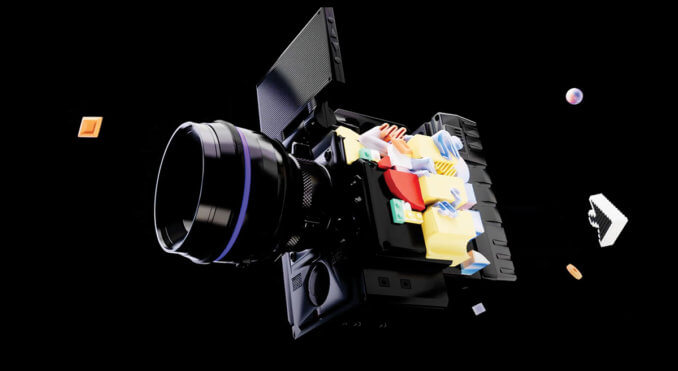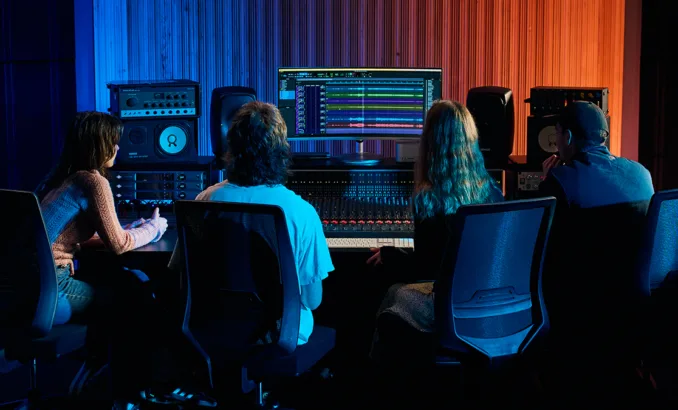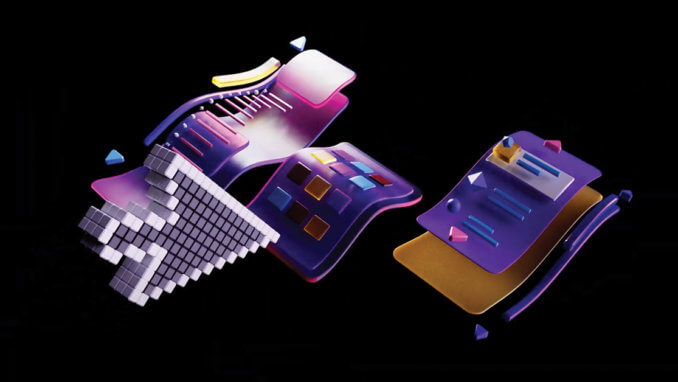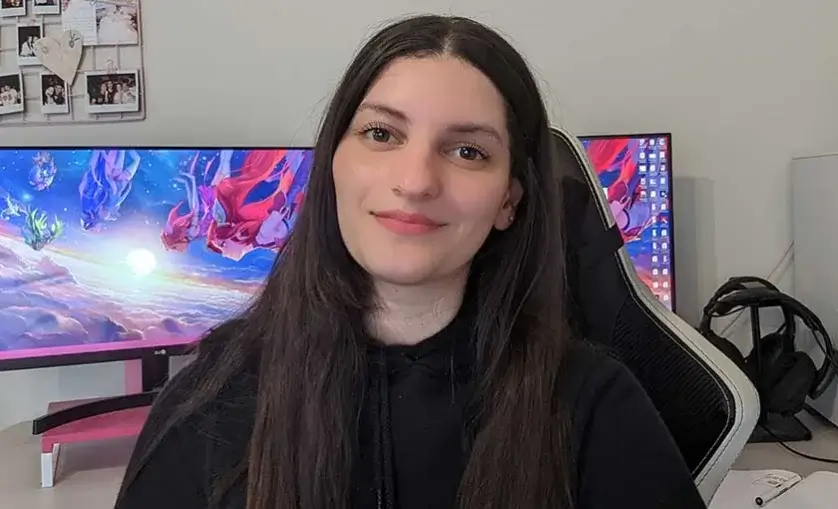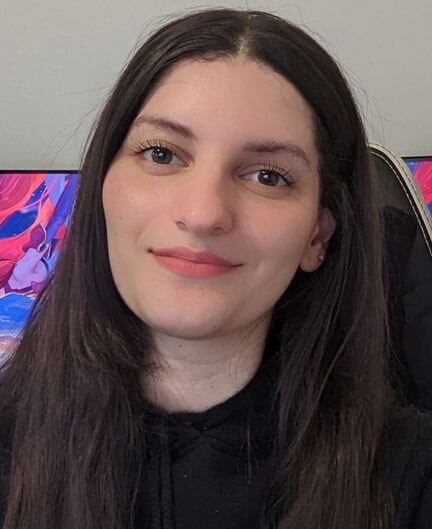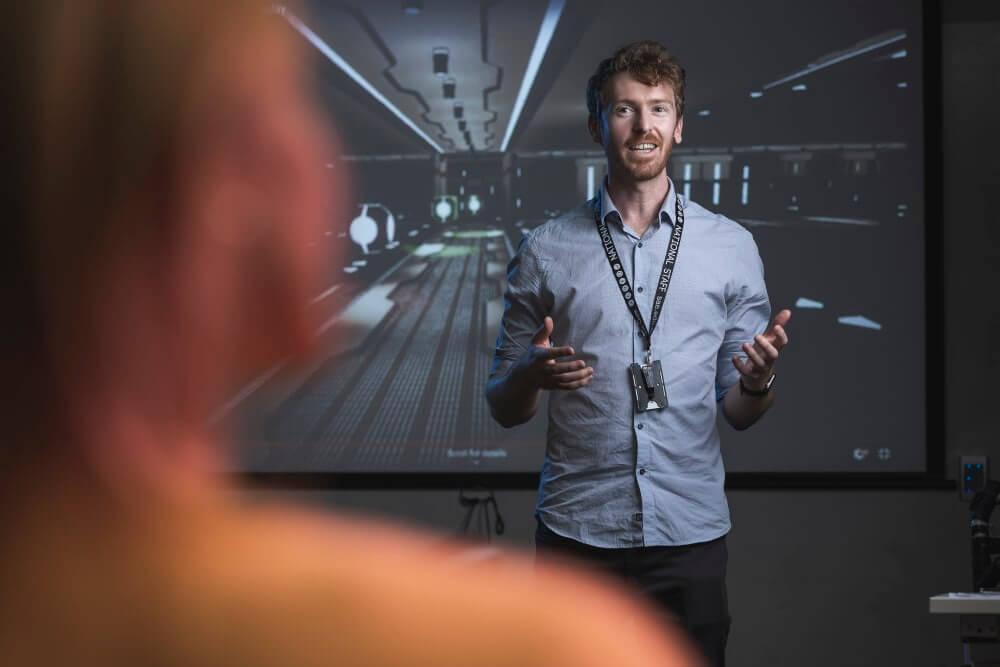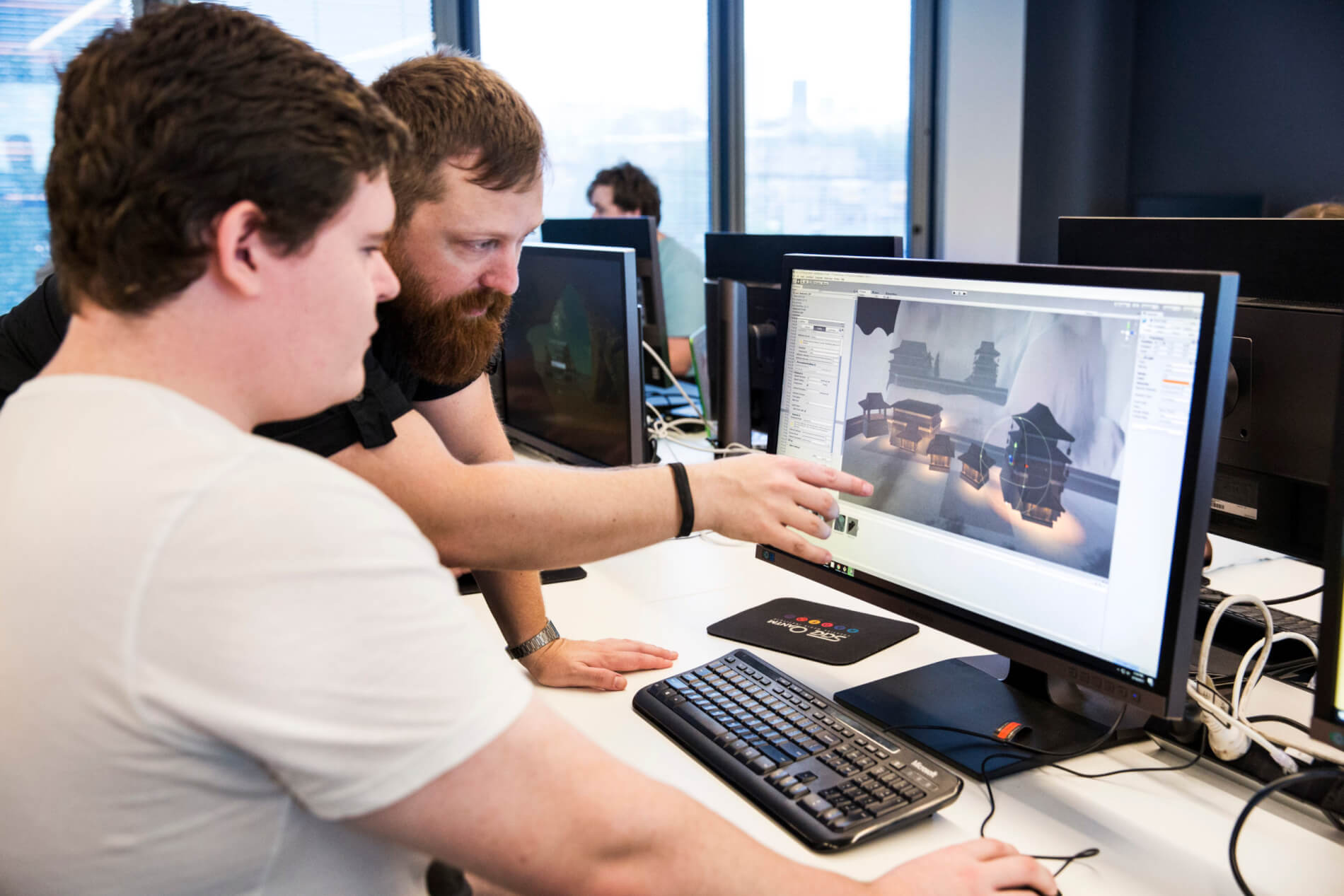Diploma of Game Development
START YOUR CAREER AHEAD OF THE GAME
Units x Costs ($AUD)
4 x $3,807
2 x $2,728
1 x $5,456
Indicative Total Course Fee*
$26,140 AUD
Plus Student Services and Amenities Fee (SSAF)
* The Indicative Total Course Fee & Indicative Annual Course Fees reflects that students are charged fees on a per unit basis and the fee for a unit may increase.
For more information view the SAE Fee Schedule or visit the Fee & Payment page.
Units x Costs ($AUD)
4 x $4,439
2 x $3,178
1 x $6,356
Indicative Total Course Fee*
$30,468 AUD
Plus Student Services and Amenities Fee (SSAF)
* The Indicative Total Course Fee & Indicative Annual Course Fees reflects that students are charged fees on a per unit basis and the fee for a unit may increase.
For more information view the SAE Fee Schedule or visit the Fee & Payment page.
Complete your course faster by studying the course units over approximately 7 months (2 trimesters).
Complete your course faster by studying the course units over approximately 7 months (2 trimesters).
Whilst still classified as a full-time study load, you will complete the course units over one year. (3 trimesters)
If you want to take a little longer, that’s ok too. We’ll help you work out the best study load to suit your needs.
Note: Part-time is not available for international students.
September 2024
February 2025
May 2025
September 2024
February 2025
May 2025
September 2024
February 2025
May 2025
September 2024
February 2025
May 2025
September 2024
February 2025
May 2025
September 2024
February 2025
May 2025
DIPLOMA OF GAME DEVELOPMENT
If you want to be part of the exciting and expanding industry of gaming, we want to help you gain the skills to stand apart from them all.
In a matter of months, you’ll learn the key fundamentals of game development.
At SAE we can offer small classes and one-on-one mentoring opportunities you may not find in a larger university.
Your growth and development as a creative practitioner will be assessed through the completion of industry-based projects. This will ultimately help you build up a body of work and portfolio to share with potential employers or your first client.
In preparation for an industry that commands agility and adaptability, you’ll cut your creative teeth on projects in partnership with your course peers.
You’ll work in a team to pitch, design, plan and deliver a game in response to a brief. Your project will extend your design and scripting skills sets, to allow you to craft a broader range of gameplay systems and features.
To complement your technical skills, you will graduate with employability skills, introductory project management skills, and scholarly techniques for higher education.
Upon completion, you will be eligible for up to 80 credit points towards either the Bachelor of Games Development.

Career Outcomes
What jobs will this course lead me into?
- Entry-level Game Designer
- Entry-level Game Level Designer
- Entry-level Community Manager
- Entry-level Games Writer
- Quality Assurance Officer
- Production Assistant
What our students say about SAE
Why study a Diploma of Game Development at SAE?
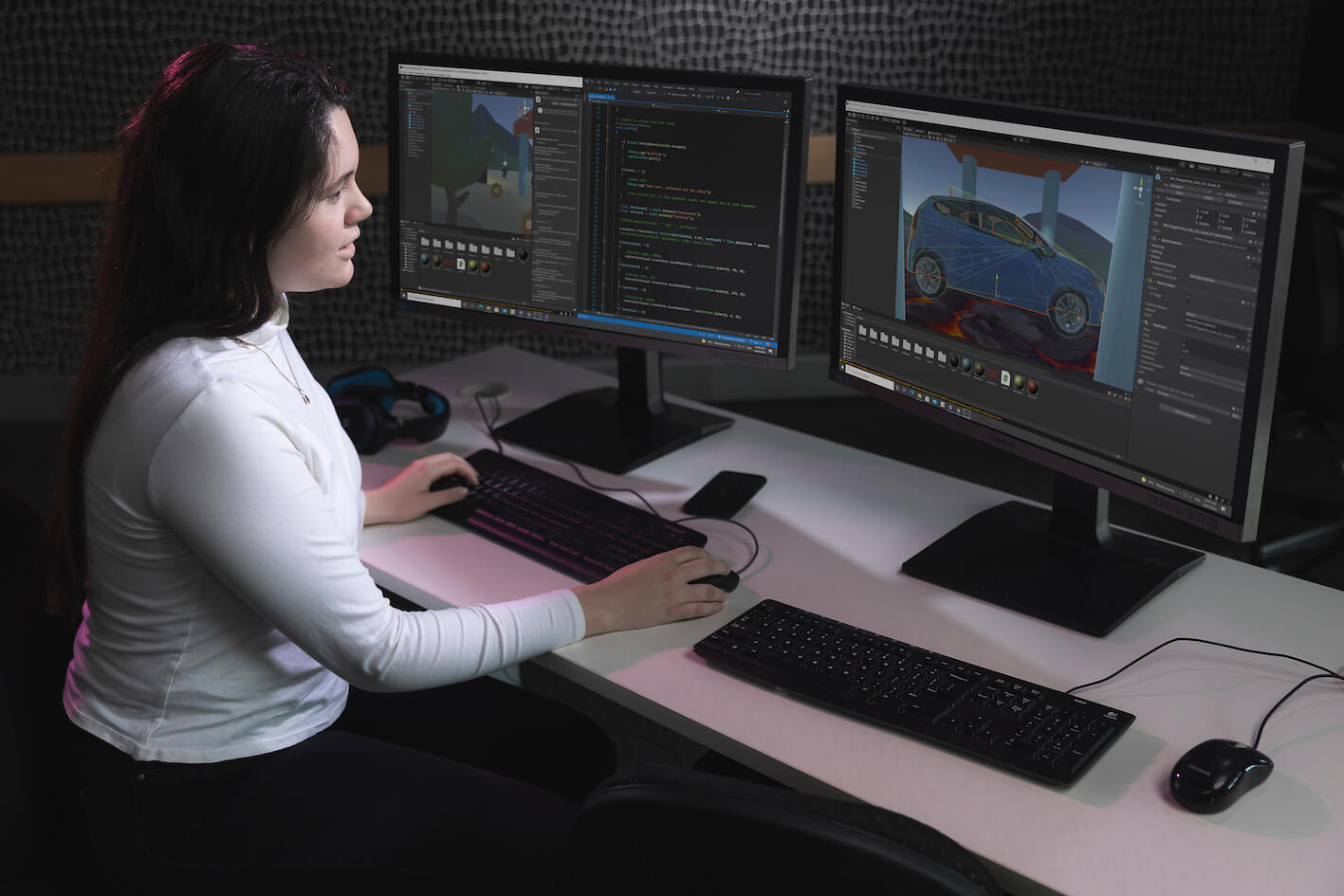
YOUR CAREER IN GAMES BEGINS NOW
Tools & Software



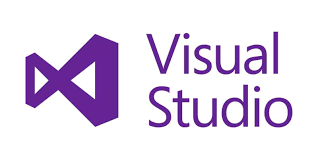
Game Development Skills
Course Structure
The Diploma of Games Development is stage 1 of the 3 stages of a Bachelor.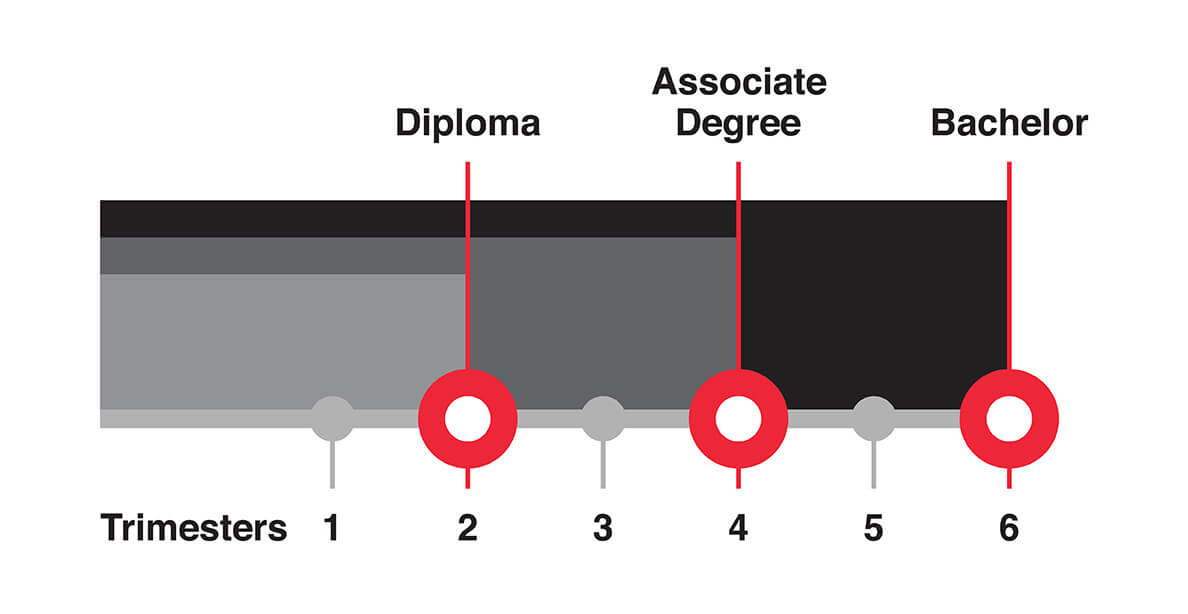
Beyond technical and craft skills, expert practitioners also have an understanding of the historical, scholarly and cultural context of games. Through developing your ability to identify scholarly and authoritative resources, your skills in research, and your capacity to argue, present and write academically, you will become a more literate creative. You'll be able to apply these skills in industry to build better outcomes for your project and company with strong links to both the past and future of Games.
Potential projects: Working in a team, you'll develop a paper and digital presentation in the style of a Games Developer's Conference.
Game scripting is a common method of controlling the behaviour and sequencing of events and interactions within a game or scenario. Scripting can be thought of as a discrete language that uses principles of mathematics, combined with rules of syntax and patterns, to provide instructions for a computer to follow.
In this unit, you will implement a range of basic game functionality by utilising data manipulation, formulas, object creation, defining of behaviours, and working with event systems. You will also build an awareness of how to use these elements within common game scripting languages and environments.
Potential projects:
Build a simple game from scratch using an existing game engine such as Unity with C#.
In order to design and create games we need to be able to understand game systems and how they generate player experience. Games are complex, sitting at the intersection of art, technology, and psychology. To be able to become an effective game developer, it's important to start at a point where you can experiment and see the immediate outcomes of your decisions upon a product. It's for this reason that most game developers start off with small, rapidly developed games or modifications to check their thinking. In this module you will learn how to analyse existing games to identify and describe their core elements and interactions. You will apply this understanding to manipulate existing games in addition to designing new ones, and then check the effectiveness of your work through playtesting and player feedback.
This unit will introduce you to 2D Game Development and is designed to equip you with foundational knowledge and skills necessary for creating 2D games. The course is structured to guide students through the process of planning and developing 2D game assets, laying the groundwork for the creation of a fully realised 2D game concept.
By the end of this unit you will have created the necessary 2D assets required to convey the mood and tone of your own game. With these assets, you will have several fully realised scenes, built in a game engine that depict your vision and demonstrate your understanding of the 2D asset production pipeline.
This unit explores the concepts of entrepreneurship, innovation and project design. You will develop approaches to identify promising opportunities and actionable strategies to transform them into tangible successes. Through exposure to developing new ideas, processes and ways of working - both individually and in entrepreneurial teams - you will hone skills to put creative ideas into practice and achieve real-world impact.
As Alan Kay explained, "The best way to predict the future is to create it", so let's get at it!
Game systems increase in importance and complexity in proportion to the size of a project. This relationship requires modular and reusable systems within game development pipelines, which can be applied to other projects. In this unit, you will extend basic scripting principles by implementing event-systems and applied mathematics in the form of modular game systems. This will involve reviewing good code design by developing or modifying fundamental game systems driven by geometry, vectors, and physics, such as input systems and character controllers, as well as researching, designing, and developing a complex game system, such as a 2D boss battle system, RPG dialogue system, or action-adventure inventory system.
3D Asset Production introduces students to the planning, design and construction of 3D models using industry standard software and techniques. This unit introduces students to concepts of workflows and pipelines in order to develop 3D assets for a number of purposes for games, animation, VFX and real-time applications. Students will develop their understanding of theoretical concepts and the practical application of 3D modelling through a hands-on approach. By planning and creating a number of 3D assets, students will develop their skills in using industry standard 3D modelling software including Maya in addition to being introduced to Substance Painter.
Students will also be introduced to the principles and concepts of transferring 3D models between applications including real-time engines and other 3D software. Through iteration and refinement, students will build their understanding of the technical and aesthetic considerations for 3D asset development for a range of contexts.
In order to create games, we must be able to manage the complexity of the game development process. To do this successfully, we need to be able to manage group communication and collaboration. This requires common languages and structures that support the variety of disciplines involved. We must also build familiarity with toolsets and existing industry practices, and be able to formulate and execute clear plans for delivering high-quality game assets and features on time. It is also essential to articulate the lessons you learn during development through reflection in a "post mortem" after a project is complete.
In this unit, you will learn about project management techniques and work in a group to pitch, design, plan, and deliver a game in response to project briefs. This will include learning and applying a range of group work and organisational skills, as well as applying iteration processes to your game design. Managing projects in this way will help you expand your existing skills in design and scripting to craft a broader range of gameplay systems and features.
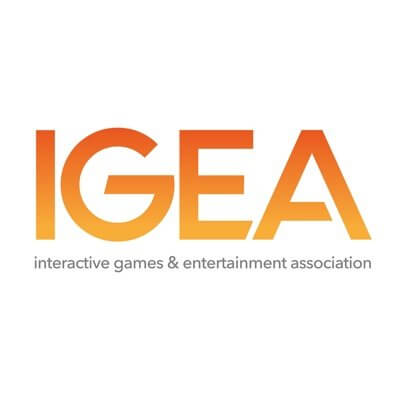
To get a FEE-HELP* loan, you must:
- Be an Australian citizen and study at least part of your course in Australia or be a New Zealand Special Category visa (SCV) holder or permanent humanitarian visa holder and meet the residency requirements. Permanent residents can only get FEE-HELP for approved bridging studies be enrolled in a fee-paying place at a provider that offers FEE-HELP loans be enrolled in an eligible course at your provider by the census date (your provider can tell you if your course is eligible)
- Submit the Request for FEE-HELP loan form to your provider by the census date
- have an available HELP balance.
- Not have undertaken more than 2 years’ worth of higher education study in the last 12 months, unless your provider has assessed you as capable of taking on a higher study load.
- Have a Unique Student Identifier (USI) prior to the first census date to be eligible for FEE-HELP if you are starting a new course in 2022. Applying for a USI is fast and free, and you keep the same USI for life. You can apply for a USI, or check if you already have one, at www.usi.gov.au.
- If you are studying at a non-university higher education provider, you must maintain a pass-rate of 50 percent or above to continue to be eligible for FEE-HELP.
* Terms and conditions apply. For the latest updates regarding FEE-HELP please refer to sae.edu.au/fees
You can choose to study most of our courses in a part-time capacity. An SAE course advisor will be able to give you more information about the study options for your chosen course.
Note: Part-time is not available for international students.
We carefully design and deliver all our units to help you develop the knowledge you need to be successful in your chosen field of study. Courses and course units at SAE follow best practice teaching and learning.
CREDIT AND RECOGNITION OF PRIOR LEARNING
SAE may recognise your prior learning and may grant credit towards satisfying the requirements for a higher-level program. This is applied where previous learning is considered equivalent to the content and learning outcomes prescribed for units within the program.
For full details, please refer to SAE's policy on recognition of prior learning and credit transfers.










